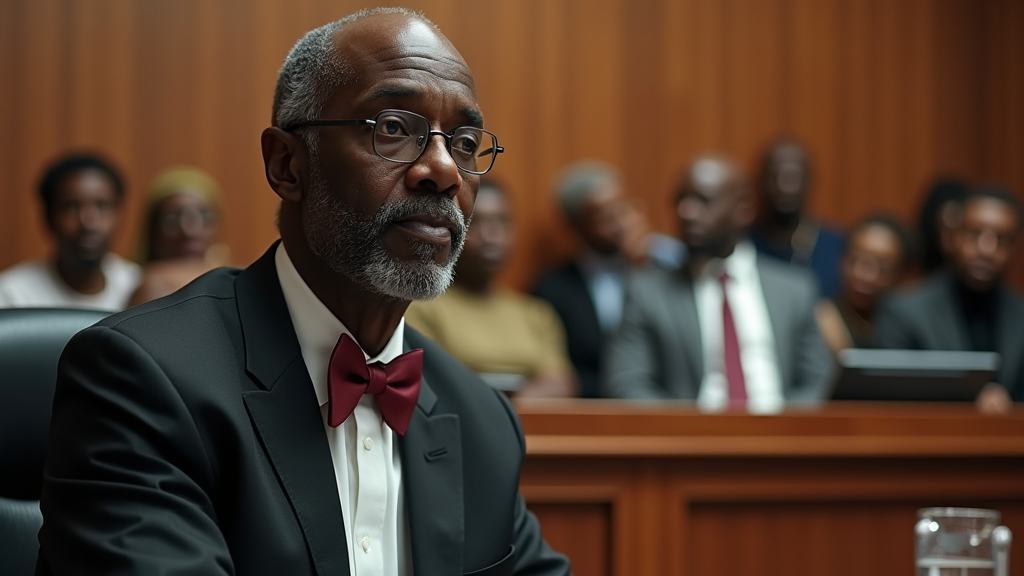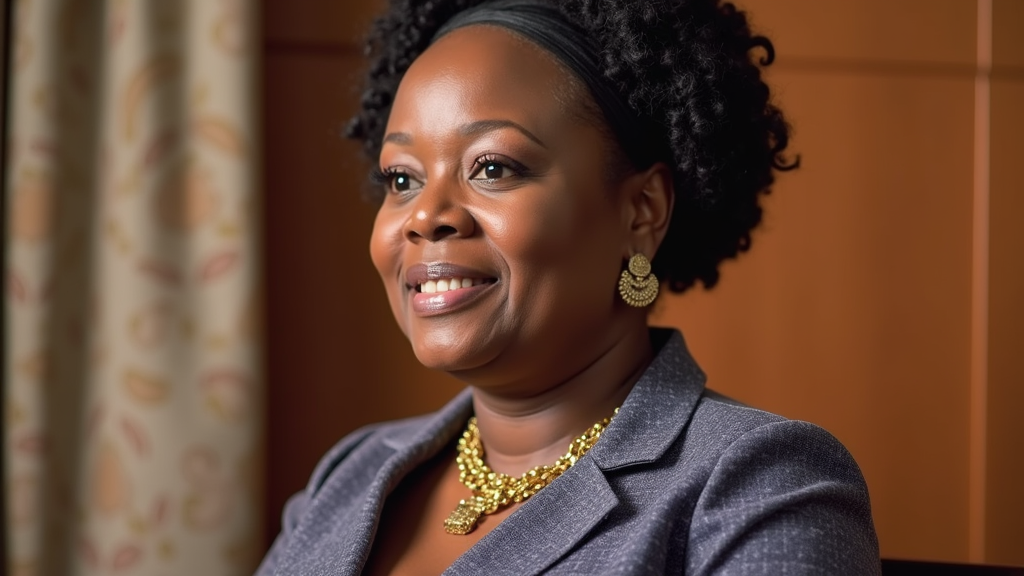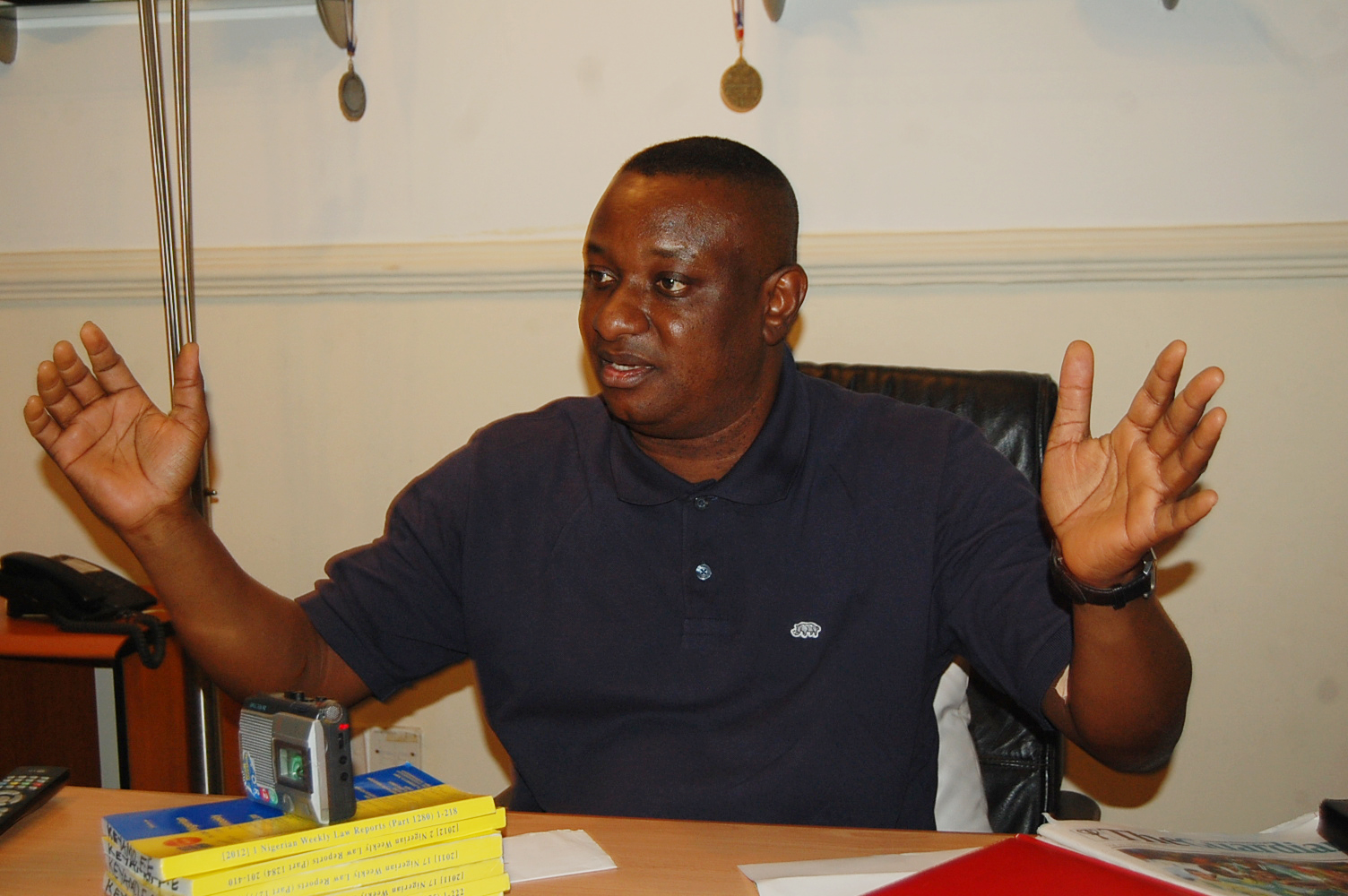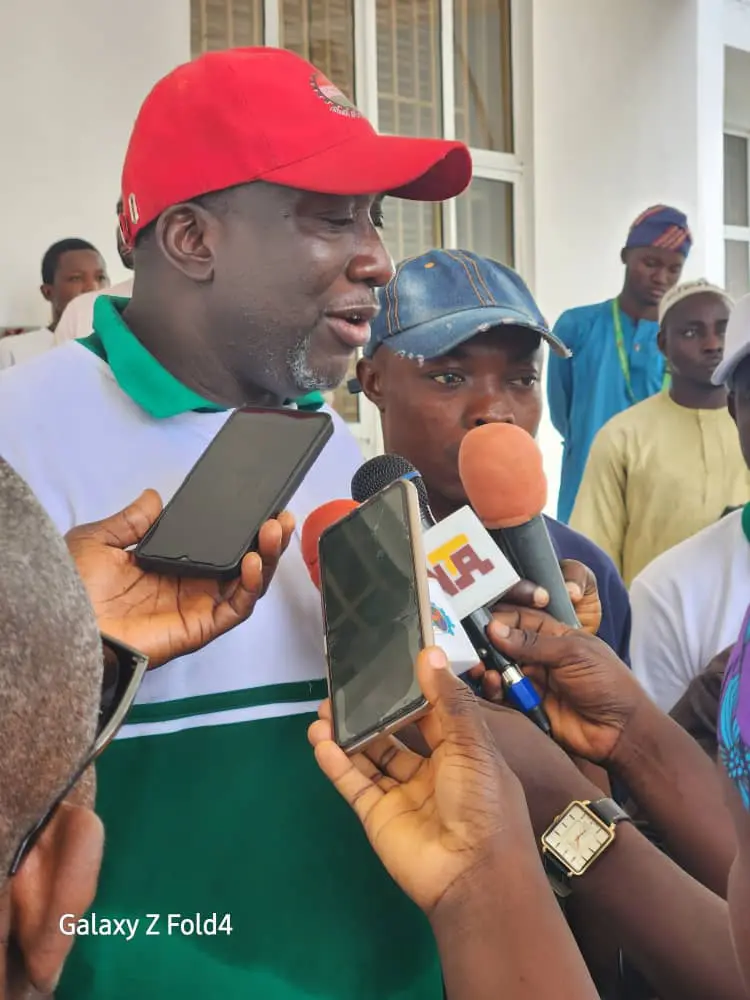In a highly anticipated bail hearing, the fate of human rights activist Omoyele Sowore was put under the spotlight as Justice Liman made controversial remarks dismissing claims of oppression in Nigeria. Sowore, facing multiple cybercrime charges filed by the Inspector General of Police, was granted bail set at N10 million, but not without stringent court bail conditions. Justice Liman’s comments stirred considerable debate, particularly among the supporters in attendance, who argue that Sowore’s legal troubles are politically motivated. As the courtroom proceedings unfolded, the judge’s insistence on the absence of oppression in Nigeria raised eyebrows, highlighting the tension between the judiciary and human rights advocates. This case not only reflects the ongoing struggle for civil liberties in Nigeria but also underscores the challenges faced by activists like Sowore in navigating a complex legal landscape.
The recent court proceedings surrounding the bail application of Omoyele Sowore, a prominent figure in Nigeria’s human rights movement, have sparked intense discussions about the state of justice in the country. During the bail hearing, Justice Liman’s assertion that there is no oppression in Nigeria has drawn criticism from various quarters, particularly from those who view the charges against Sowore as a means of silencing dissent. As the legal battles unfold, the implications of the court’s bail conditions and the charges of cybercrime highlight broader concerns regarding civil rights in Nigeria. The situation serves as a reminder of the ongoing tensions between activists and the authorities, raising questions about the protection of fundamental freedoms in the face of legal challenges. With Sowore’s case at the forefront, the national dialogue on justice and human rights continues to evolve, reflecting the complexities of Nigeria’s political landscape.
Justice Liman’s Controversial Remarks During Sowore’s Bail Hearing
During the recent bail hearing of human rights activist Omoyele Sowore, Justice Musa Liman made headlines with his controversial statement declaring that there is no oppression in Nigeria. This assertion raised eyebrows among observers, particularly in light of the numerous claims of systemic oppression faced by activists and dissenters in the country. Justice Liman’s remarks were delivered in a courtroom filled with Sowore’s supporters and legal representatives, which highlighted the tension surrounding the case. His assertion that oppression does not exist sparked a strong reaction, especially from those who believe that the political climate in Nigeria is stifling free speech and human rights.
Justice Liman’s comments not only challenged the narrative of oppression in Nigeria but also criticized foreign nations for their treatment of dissenters. His statement indicated a belief that Nigeria’s democratic system, despite its flaws, does not equate to oppression. This perspective is contentious, as many human rights organizations continuously report instances of human rights abuses and political repression within the country. The courtroom drama unfolded further when Liman’s remarks were met with disapproval from the audience, suggesting that the perception of justice in Nigeria is deeply polarized.
Sowore’s Cybercrime Charges and Political Implications
Omoyele Sowore faces 16 cybercrime charges, which many observers believe are politically motivated. These charges originated after he referred to Inspector General of Police Kayode Egbetokun as an ‘Illegal IG,’ a statement that has been interpreted as a critique of the police’s legitimacy in Nigeria. Sowore’s legal team argues that these charges are not just about cybercrime but are part of a broader pattern of harassment against those who oppose the current administration. Activists have voiced concerns that the legal actions against Sowore are a means to suppress dissent and intimidate other human rights advocates in Nigeria.
The implications of these charges against Sowore extend beyond his personal freedom; they represent a critical juncture for civil society in Nigeria. As a prominent figure in the fight for human rights, Sowore’s case has galvanized support from various human rights organizations and activists. They argue that the continued prosecution of Sowore is indicative of a larger trend of oppression faced by those who dare to challenge the status quo. This situation has sparked discussions about the need for reforms within the Nigerian legal system to ensure that it protects, rather than punishes, those who speak out against governmental abuses.
Court Bail Conditions Set for Sowore Amidst Controversy
In a significant ruling, Justice Liman granted bail to Sowore set at N10 million, with specific conditions that reflect the court’s cautious approach to his release. The bail conditions require that Sowore deposit his passport with the court, a measure that raises concerns about his freedom of movement and ability to engage with supporters or international observers. This decision has been interpreted by some as a means to further control Sowore and limit his influence while the charges against him are pending. The conditions also stipulate that Sowore must provide a surety with verified landed property in the Federal Capital Territory, highlighting the stringent requirements often placed on activists in Nigeria.
Furthermore, Sowore was initially given a specific timeframe to meet these bail conditions, which adds pressure to an already tense situation. However, the court’s decision to provide an additional 24-hour extension demonstrates an acknowledgment of the complexities surrounding his case. Critics argue that these bail conditions are excessive and reflect a judicial system that is not fully supportive of human rights. The insistence on stringent bail requirements for a prominent activist like Sowore raises questions about the fairness and impartiality of the Nigerian justice system, particularly in cases involving political dissent.
Public Reaction to Sowore’s Bail Hearing
The public reaction to Sowore’s bail hearing has been a mix of support and outrage. Outside the courthouse, Sowore’s supporters rallied, calling for his immediate release and condemning the charges against him as politically motivated. This show of solidarity underscores the significance of Sowore’s case to many Nigerians who view him as a symbol of the struggle for democracy and human rights. The protests have drawn attention to the broader issues of oppression and abuse of power that activists face in Nigeria, highlighting the urgent need for systemic change.
Many influential figures, including members of the Nigerian Bar Association’s Human Rights Committee, have expressed concern over Justice Liman’s remarks and the implications for the rule of law in Nigeria. The courtroom atmosphere was charged with emotions as supporters voiced their disapproval of the judge’s assertions about the absence of oppression in the country. This situation has ignited discussions on social media platforms, where users are calling for greater accountability from the judiciary and advocating for the rights of activists facing similar charges. The outpouring of public support for Sowore reflects a growing awareness of the challenges faced by human rights defenders in Nigeria and a collective demand for justice.
The Role of the Judiciary in Nigeria’s Human Rights Landscape
The judiciary plays a crucial role in shaping the human rights landscape in Nigeria, particularly in cases involving politically sensitive figures like Omoyele Sowore. Justice Liman’s comments during the bail hearing raise important questions about the independence of the judiciary and its responsiveness to human rights concerns. The perception that the court system may be influenced by political pressures can undermine public confidence in justice and the rule of law. Many advocates argue that for democracy to thrive in Nigeria, the judiciary must uphold human rights standards and protect those who dissent from government actions.
Moreover, the judiciary’s stance on cases involving activists like Sowore can set important precedents for future legal battles concerning freedom of expression and assembly. As the nation grapples with issues of governance and civil liberties, the role of judges like Liman will be scrutinized by both the public and international observers. A commitment to impartiality and fairness in the judicial process is essential to restoring faith in Nigeria’s legal framework and ensuring that it serves as a protector of human rights rather than a tool for oppression.
Implications of Bail Conditions on Activism in Nigeria
The bail conditions imposed on Sowore have significant implications for activism in Nigeria. By requiring the deposit of his passport and the provision of specific surety requirements, the court has effectively limited Sowore’s ability to travel and engage with supporters outside the country. This restriction could deter other activists from speaking out against governmental abuses for fear of similar repercussions. The atmosphere of fear and uncertainty surrounding the legal proceedings against Sowore may have a chilling effect on civil society, potentially stifling dissent and diminishing the collective voice of those advocating for change.
Additionally, the stringent bail conditions raise concerns about the access to justice for activists in Nigeria. Many individuals facing similar charges may not have the resources to meet these conditions, further marginalizing their ability to challenge oppressive practices. The legal system’s treatment of Sowore’s case signals to potential activists that engaging in political dissent comes with substantial risks. This reality underscores the urgent need for reforms within the Nigerian judiciary to ensure that it protects the rights of all citizens and supports a vibrant civil society.
International Attention on Sowore’s Case and Nigeria’s Human Rights Record
Sowore’s case has garnered international attention, shining a spotlight on Nigeria’s human rights record. Organizations such as Amnesty International and Human Rights Watch have closely monitored the developments, highlighting the broader implications for freedom of expression and political dissent in Nigeria. The international community’s reaction to the way Sowore is treated could influence diplomatic relations and aid discussions, as nations grapple with how to support democracy and human rights in Nigeria. The increasing scrutiny from abroad may pressure Nigerian authorities to reassess their approach to dissenters and activists.
Moreover, the visibility of Sowore’s case provides an opportunity for global advocates to rally support for the human rights situation in Nigeria. By amplifying his story and the challenges he faces, activists can engage a larger audience and draw attention to systemic issues affecting many Nigerians. This international advocacy is crucial in creating a sense of solidarity with local movements and can help foster a more robust dialogue about human rights and governance in Nigeria. The world is watching, and the outcome of Sowore’s case might serve as a litmus test for Nigeria’s commitment to upholding democratic principles and protecting human rights.
The Future of Activism in Nigeria Amidst Legal Challenges
As legal challenges continue to mount against activists like Sowore, the future of activism in Nigeria hangs in the balance. The increasing number of cybercrime charges and the stringent bail conditions reflect a worrying trend where the legal system is used as a weapon against dissent. Activists are left to navigate a complex landscape where their rights are constantly under threat, raising concerns about the sustainability of their movements. Despite these challenges, the resilience of Nigeria’s civil society has been evident, as supporters continue to rally behind figures like Sowore, advocating for justice and accountability.
Looking ahead, the prospects for activism will depend largely on the responses from both the judiciary and the international community. If the legal system is perceived as being fair and impartial, it may encourage more individuals to engage in activism without fear of reprisal. Conversely, if the trend of oppression continues, it could lead to a significant decline in public discourse and civic engagement. Ultimately, the future of activism in Nigeria will be shaped by the ongoing struggle for justice and the determination of individuals to stand up against oppression in pursuit of a more equitable society.
Reflection on Justice Liman’s Statements and Their Impact
Justice Liman’s remarks about the absence of oppression in Nigeria have sparked significant debate and reflection. Many observers have noted that such statements can undermine the lived experiences of those who have faced persecution for their beliefs. The disconnect between the judiciary’s rhetoric and the reality of human rights abuses in Nigeria creates a troubling narrative that may hinder progress in the pursuit of justice. Activists and human rights advocates are calling for a more nuanced understanding of the challenges faced by dissidents, emphasizing the importance of acknowledging and addressing these issues within the judicial system.
The impact of Justice Liman’s statements extends beyond the courtroom; they influence public perception and shape the discourse surrounding human rights in Nigeria. By dismissing claims of oppression, the judiciary risks alienating those who are fighting for their rights and could inadvertently strengthen the resolve of activists who see their struggles validated by the international community. Moving forward, it is essential for judges and legal authorities to engage with the realities of human rights challenges in Nigeria, fostering an environment where justice can be truly served.
Frequently Asked Questions
What were Justice Liman’s remarks during Sowore’s bail hearing?
During Sowore’s bail hearing, Justice Musa Liman controversially claimed that there is no oppression in Nigeria, dismissing such references made in the courtroom. His remarks were met with disapproval as he argued against the notion of oppression in the country.
What are the bail conditions set for Omoyele Sowore?
Omoyele Sowore was granted bail set at N10 million, requiring one surety with verified landed property in the Federal Capital Territory (FCT). Additionally, Sowore must deposit his passport with the court and provide an affidavit of means.
Why was Sowore granted bail despite facing cybercrime charges?
Sowore was granted bail despite facing 16 cybercrime charges because his legal team presented a strong case, arguing that he voluntarily honored a police invitation and that the prosecution’s objections were unfounded.
What charges is Sowore facing related to the cybercrime allegations?
Sowore faces 16 cybercrime charges filed by the Inspector General of Police, Kayode Egbetokun, primarily stemming from his critical remarks about the police chief, which he labeled as ‘Illegal IG’.
How do supporters view the charges against Sowore during his bail hearing?
Supporters of Sowore view the charges against him as politically motivated, expressing their discontent outside the courthouse and calling for his immediate release.
What extension was granted to Sowore for meeting his bail conditions?
The court granted Sowore a 24-hour extension to fulfill his bail conditions after the initial requirement was set, allowing him additional time to meet the court’s stipulations.
What was the public reaction to Justice Liman’s statements about oppression in Nigeria?
Justice Liman’s statements about the non-existence of oppression in Nigeria led to a loud echo of disapproval in the courtroom, indicating a significant public sentiment against his assertions.
How did Justice Liman address the criticisms of Nigeria’s democracy during Sowore’s bail hearing?
While acknowledging that Nigeria’s democracy is not perfect, Justice Liman insisted that there is no oppression within the country, suggesting that criticisms from ‘advanced countries’ about oppression should also be directed inward.
| Key Points | Details |
|---|---|
| Justice Liman’s Statement | Justice Liman stated in court that there is no oppression in Nigeria, addressing Barrister Maxwell Opara. |
| Sowore’s Bail Grant | Omoyele Sowore was granted bail set at N10 million with specific conditions. |
| Court Conditions | Sowore must deposit his passport, provide an affidavit of means, and have a surety with verified property in FCT. |
| Public Reaction | Sowore’s supporters gathered outside the courthouse, condemning the charges as politically motivated. |
| Charges Against Sowore | Sowore faces 16 cybercrime charges, including calling the police chief an ‘Illegal IG’. |
Summary
Sowore’s bail hearing highlighted significant tensions surrounding human rights in Nigeria. The remarks by Justice Liman asserting that there is no oppression in the country underscore the complex legal and political landscape in which Sowore finds himself. As a prominent activist and former presidential candidate, Sowore’s case has drawn public attention and criticism of the charges he faces, which many view as politically motivated. This situation raises ongoing questions about the state of justice and civil liberties in Nigeria.



